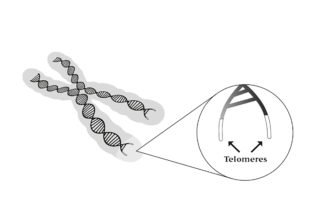The truth of the matter is quite simple: none of us want to age. In fact, most people are willing to do whatever it takes to stay young for as long as possible. And with good reason – most things become more difficult when we get old, and your quality of life generally decreases – along with the length of our telomeres. Not to mention the number of regular doctors’ appointments that are on the increase.
The anti-ageing market is a lucrative business, with hundreds of thousands of products, anti-wrinkle creams, remedies, quick fixes and plastic surgery options on the market, and countless laboratories looking for answers in genetics, within molecular and cellular biology, and in biochemistry – all focused on slowing down the aging process, inside and out.
Although research is showing that we are living longer – with many people looking at 90 birthdays and up – in certain countries, the average life expectancy is still only around 70.
Now latest worldwide research into finding an antidote to ageing, with over 20 000 studies to date, seems to point towards the end of your DNA strands – your telomeres to be exact. The cause, effect and the solution to the speed at which you age lies within these spirally chromosomes.
 Telomeres are the blueprint for the production of new cells in your body and protect the chromosomes housing your all-important DNA. As we age, our telomeres become shorter, which makes them a tangible, biological “measure” of a lifespan.
Telomeres are the blueprint for the production of new cells in your body and protect the chromosomes housing your all-important DNA. As we age, our telomeres become shorter, which makes them a tangible, biological “measure” of a lifespan.
“Think of them like the hard bit at the end of your shoelaces, except these shoelaces are the spirally chromosomes that house your genes. Every time you make a new cell, your telomere length shortens and when you “run out” of sufficient length, the game is over,” says world-renowned nutrition expert Patrick Holford.
While the list of factors that speed up ageing is short, they are not easily eliminated out of our lives through conscious decision but rather as a work in progress.
Holford outlines the top causes of faster ageing:
- Stress and early life traumas
- Depression
- Hostile cynicism
- Lack of sleep
- High homocysteine levels
- Inflammation
- Exposure to pesticides or herbicides
- Obesity
- Smoking
- Heavyweight alcohol consumption
“As symptoms of ageing occur, so more drugs are added to the list of daily medication. While effective in emergencies or when things become dire, drugs aren’t tools to keep you healthy or young,” says Holford.
He goes on: “Drugs, unlike nutrients, are loners. They don’t get on so well with other drugs and can cause a lot of collateral damage. Nutrients, on the other hand, usually need to work in teams to have the best effect.”
Having turned 60 earlier this year and with a keen interest in the topic, Holford was reminded of one of his teachers, Canadian biochemist and psychiatrist Dr Abram Hoffer, who lived to the age of 91, and despite retiring at 88, continued to advise people about their health until two weeks before his death.
“He was very careful about what he ate, avoiding sugar and refined foods, and he took a cocktail of vitamins, minerals, and essential fats every day,” recalls Holford.
This lifestyle philosophy is very similar to recent research on the factors that produce telomerase activity, an enzyme that can lengthen telomeres, and has been at the heart of Holford’s optimum nutrition advice for many years.
Holford outlines key nutrients associated with slowing down the ageing process:
- B Vitamins (especially Folate and B12) linked to lower homocysteine levels.
- Vitamin C
- Vitamin D
- Zinc
- Magnesium
- Omega 3 (especially DHA)
“Generally, the higher your intake, the longer your telomeres. Also, multivitamin takers have longer telomeres,” says Holford.
Holford also recommends a number of lifestyle changes to lengthen telomeres:
- Exploring delicious recipes from the Mediterranean diet.
- Incorporating more seeds and nuts into your diet.
- Plenty of antioxidant rich foods such as onions, beans, berries, green tea and dark chocolate.
- Regular exercise.
“Remember, ageing well shouldn’t become a chore. The whole idea is that the changes you are making should make you feel better now; what you do now will play a big part in what your life is going to be like in 10, 20 or 30 years’ time,” says Holford.
About aging and retirement
Want to find out how to make your retirement happy? Click on the link.



![women [longevity live]](https://longevitylive.com/wp-content/uploads/2020/01/photo-of-women-walking-down-the-street-1116984-100x100.jpg)










